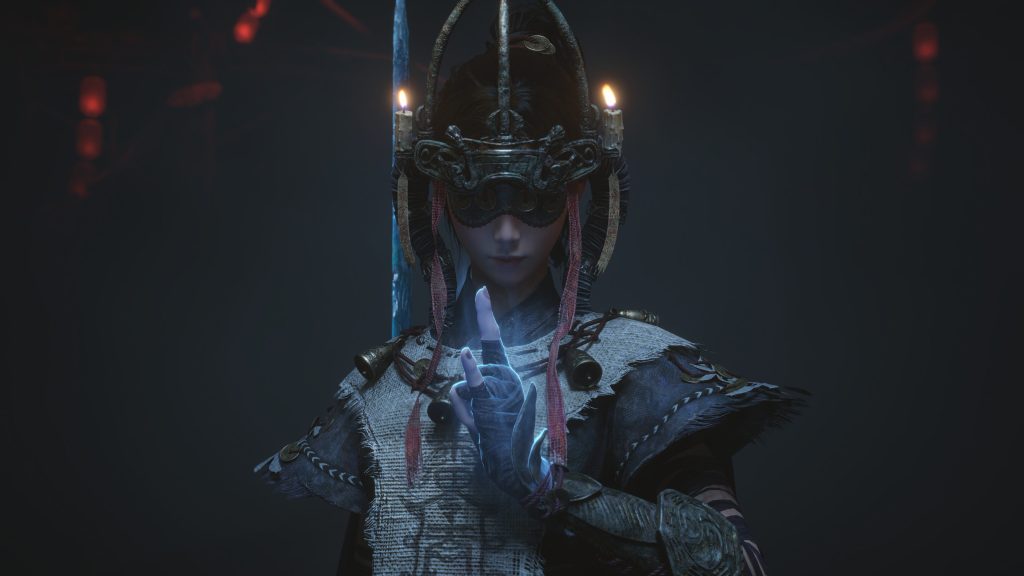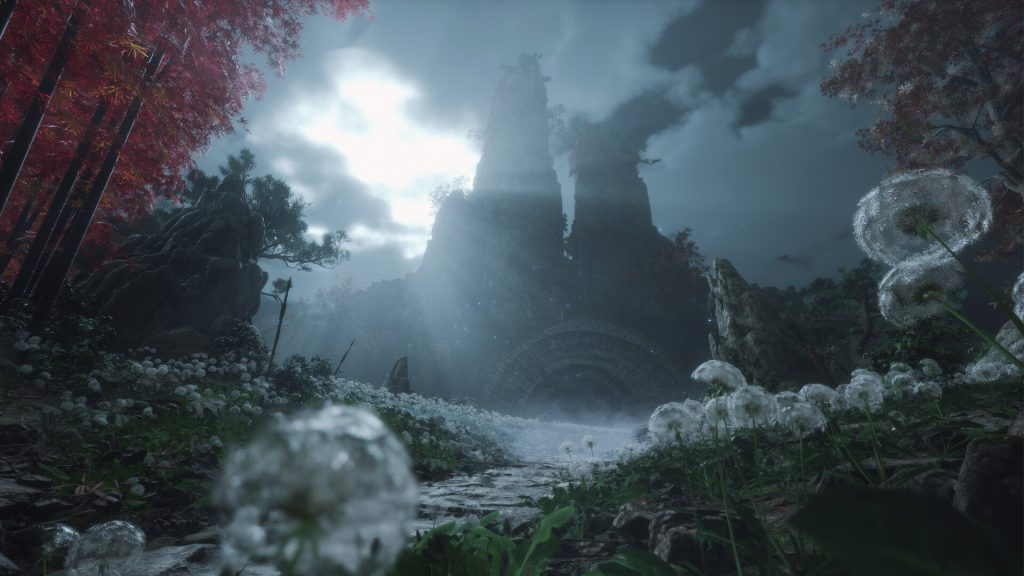Fallen Feathers Has the Potential to Be the Next Big Soulslike

These days, every new action-RPG which ties immersive world design and exploration, lightning fast dodge-block-parry focused combat, and enthralling – if macabre – narrative into a coherent package seemingly gets lumped in with the Soulslike sub-genre birthed by Japanese giants FromSoftware. Oversaturated the crowd has become, but new Soulslikes are releasing every year which prove the sub-genre is far from stagnating.
FromSoft’s three pillars of Soulslike game design – world building, narrative, and combat – are being adopted and refreshed by studios looking to carve out their own niche. Most notably, Lies of P featured a novel, narrative influencing “Lie” system and combat customising Legion Arm mechanic. Last year’s runaway success Black Myth: Wukong strove for surplus innovation in the sub-genre with the team behind its creation championing the game as something new; Black Myth-like, perhaps, thereby distancing their own creation from FromSoftware’s back catalogue.
Chinese studio Leenzee aren’t placing any such distance between their upcoming debut title and its inspiration, self-describing Wuchang: Fallen Feathers as a Soulslike action-RPG. The studio aims to mirror the trajectory of its future endeavours on FromSoftware’s evolution too – from early Souls games which prioritised world building through Sekiro: Shadows Die Twice’s sharpened action, culminating with Elden Ring – and it’s new multiplayer spinoff – which coalesced their game making skill into an open world. Studying their evolution, FromSoftware iterated and improved on their core foundation – adding more to each pillar – as they went on.
Leenzee are more grounded in their early ambition. For their first title, they’re opting to focus on two of Soulslike’s three pillars – world design and combat depth – with narrative taking a backseat until the studio finds a firmer foothold. They have a long term plan to iterate on Soulslike’s established pillars with each game they produce, to make them their own, but for now Wuchang: Fallen Feathers is richest in its world building and combat depth.
That’s not to say the game won’t harbour an interesting story. Indeed, its backdrop set amongst the tumultuous decline of the ancient Ming Dynasty, a landscape imbued by folkloric fantasy suffocating under a supernatural “Feathering” disease, an infected, amnesiac player-character fighting to halt her mutation whilst discovering who she is – it’s an intriguing set up which should yield a satisfactory tale.
Furthermore, within Fallen Feathers’ narrative setup arises interesting gameplay elements; the just-mentioned mutation manifests as an inner demon the more our player-character – the titular Bai Wuchang – kills, a vessel strengthening through her whilst gradually whittling down her resolve. Dying too many times releases the demon to physical form, with players then forced to return to where Wuchang was slain to defeat the demon and recover items lost.
The mysterious Feathering disease informs the identity of the game’s combat systems; in practice, it’s an affliction capable of unleashing immense power but it’s not without risk. The cost of wielding such power – unloading devastating attacks, chaining melee combos, spellcasting – versus the subsequent chance to be left vulnerable must be assessed and enacted on the fly. During Fallen Feathers’ lightning-quick combat, these elements of tactical astuteness hint at stern tests, or that maybe there’s a high skill ceiling to reach before feeling competent in battle. However, all you’ll need to master is the dodge. At least, initially.
Based on gameplay footage shared thus far, combat in Wuchang: Fallen Feathers seems to lean towards Sekiro-style precision but with great emphasis on dodging. Well-timed dodges grant Wuchang with avian power-ups – displayed via eye-catching neon feather-wear on her arms – allowing her to whip out the most powerful form of her weapon techniques.
This mechanic, contained within a system dubbed Skyborn Might, is divided into weapons-based skills – tied to the specific weapon she is wielding – and discipline-based skills, which are tied to the category of weapon she holds. When Leenzee says they’re focusing on Fallen Feathers’ combat depth, they weren’t wrong. Battling in command of Wuchang is absolutely why we cannot wait to play Fallen Feathers, and you should be excited too.
See, this system can be iterated on as you progress. The basic light and heavy attacks, plus the ability to dual-wield weapons, swiftly swapping between either as the situation demands, are present, of course, but early on you’ll realise that only certain weapon categories allow blocking. There isn’t even a dedicated parry button either.
However, acquiring weapons from the suite of categories available and perfect blocking is revealed to be possible after all. It’s a discipline tied to axe weapons. What’s more, ploughing XP into defensive or evasive minded skill tree branches will eventually lead to perfect blocks which don’t use up any accumulated Skyborn Might points. So, whilst dodging is the primary go-to for accumulating power-ups, these points can increasingly be used on flashy special moves; emphasising smoothly ratcheting up choreographed combos. Once dodging is mastered, the game encourages players to stay on the front foot, to maintain momentum as more weapons, skills, and abilities are unlocked.

Once timing is learned, combat in Fallen Feathers becomes an increasingly empowering experience. Sensing progression as tangibly as this, in tandem with new manoeuvres and capabilities as they’re discovered, feels remarkably fresh in a space we’ve already stated as exponentially overcrowded. Leenzee are rightly satisfied with the combat system they’ve drawn up. It perfectly marries accessibility with ambition.
See, if mastering dodging is too easy for you then the next level to consider is proper distancing between Wuchang and her enemies. Judging how far an enemy can strike, the distance her weapons can reach, making sure she’s not too close as to be exposed, and is suitably placed to dodge – and later block or parry perfectly – before seamlessly countering, these are skills players can choose learn with the understanding that overall game success doesn’t depend on them.
That said, Leenzee do seem to be pointing players to engage with Fallen Feathers’ combat in a certain way, and that is with style as well as effectiveness. Their method to design and implement combat manoeuvres in-game is via motion capturing everything. Spellcasting, also, is undeniably one of the most visually arresting elements in the game’s action sequences.
Fearsome boss fights harbouring visual spectacle, unique designs and movesets tie the meaningful aesthetic together. There’s a confidence Leenzee are showcasing in their combat’s visual language, and this is something we’re seeing more and more from first time developers. Just look at Clair Obscur: Expedition, from first time developer Sandfall Interactive as another established example of a game which blends style and substance perfectly.
Wuchang: Fallen Feathers looks certain to hit a homerun in similar fashion. For a fledgling team to be so blatant in their Soulslike inspiration yet still conjure something novel is remarkable. The key takeaway here is that, without doubt, Wuchang: Fallen Feathers will not be a pale imitation of the sub-genre FromSoftware created. We haven’t even touched upon exploration or world building in this feature, but rest assured those elements have been as carefully considered as the title’s gameplay and combat.

Over-ambitiousness sometimes leads to mediocrity, an eagerness to perfect every element. Leenzee have been right to focus their efforts on Wuchang: Fallen Feathers’ combat and world design as, whilst expansive a visually stunning sandbox the game takes place in, it’ll be the combat in which this game is revered. The newfound studio have pushed for originality and innovation, reimagining Soulslikes to elevate the genre beyond what FromSoftware established.
Note: The views expressed in this article are those of the author and do not necessarily represent the views of, and should not be attributed to, GamingBolt as an organization.











